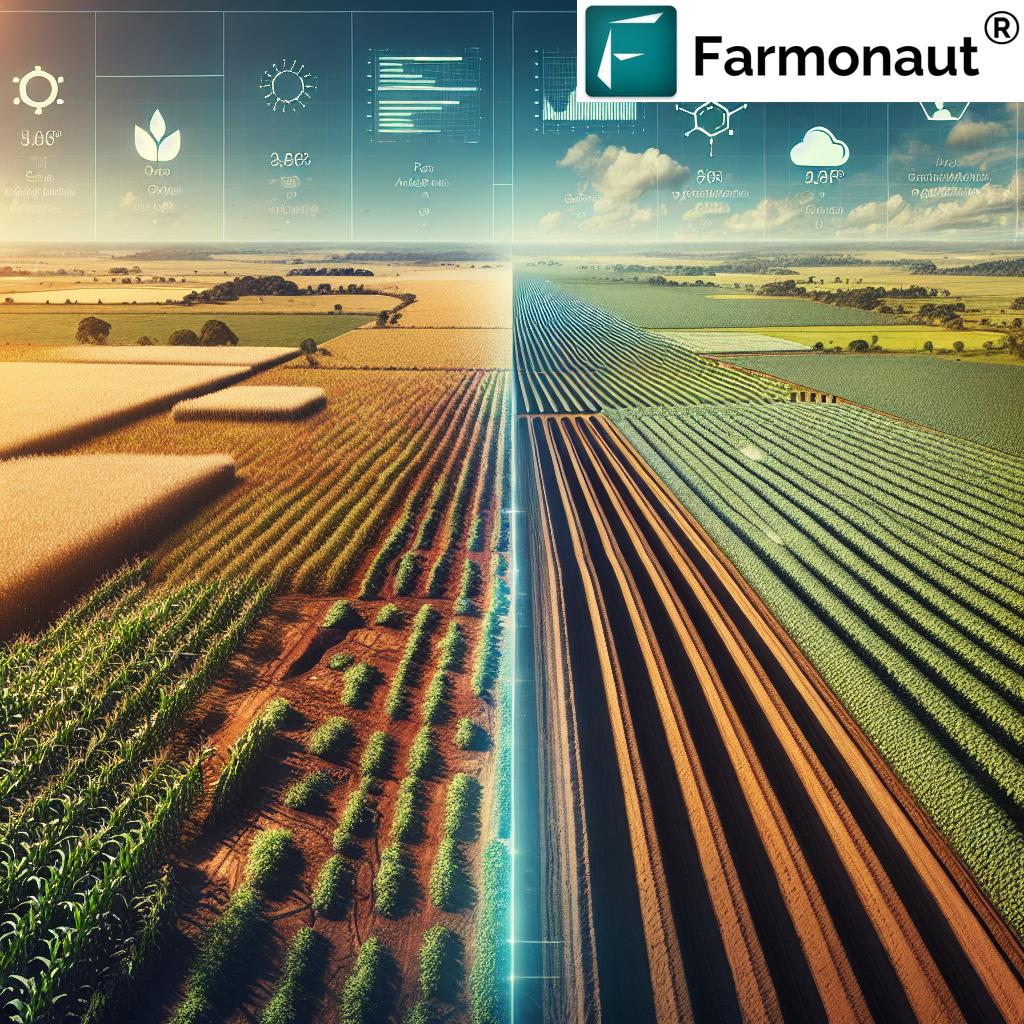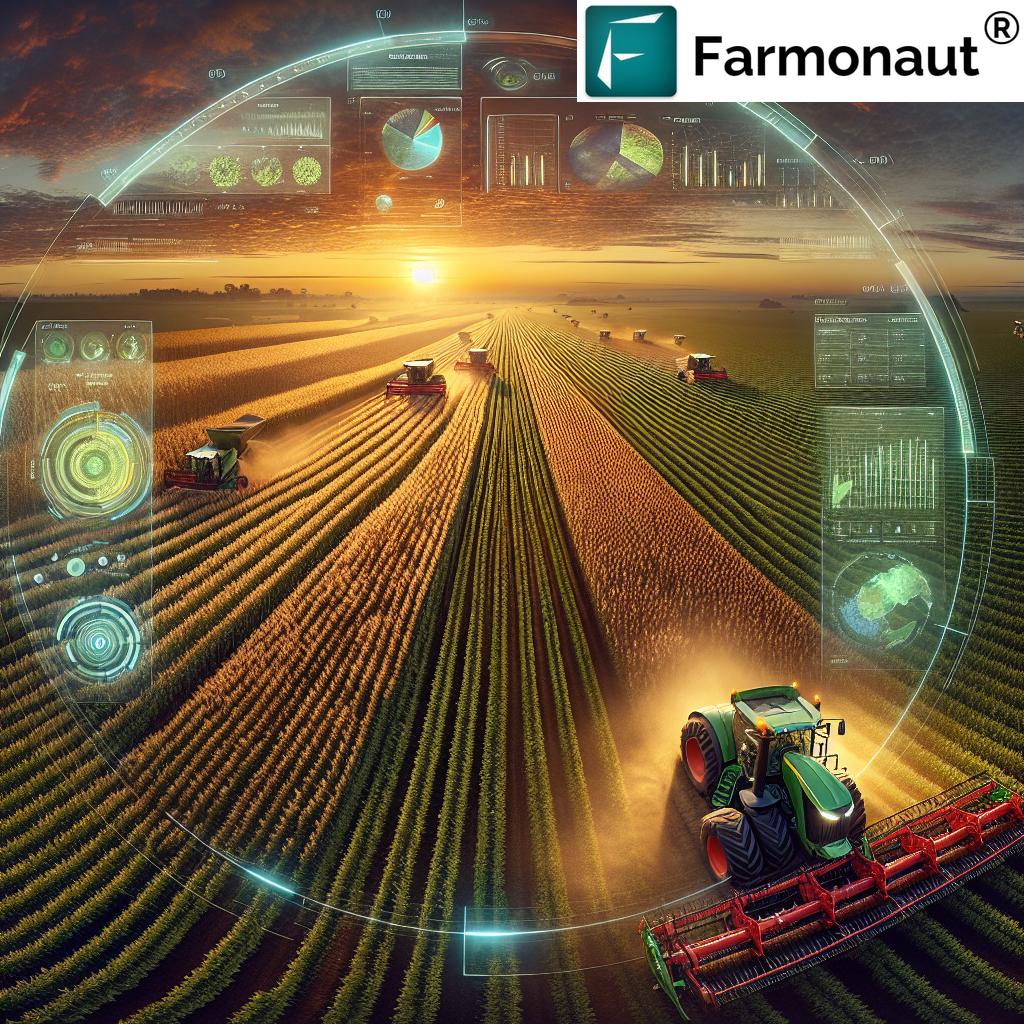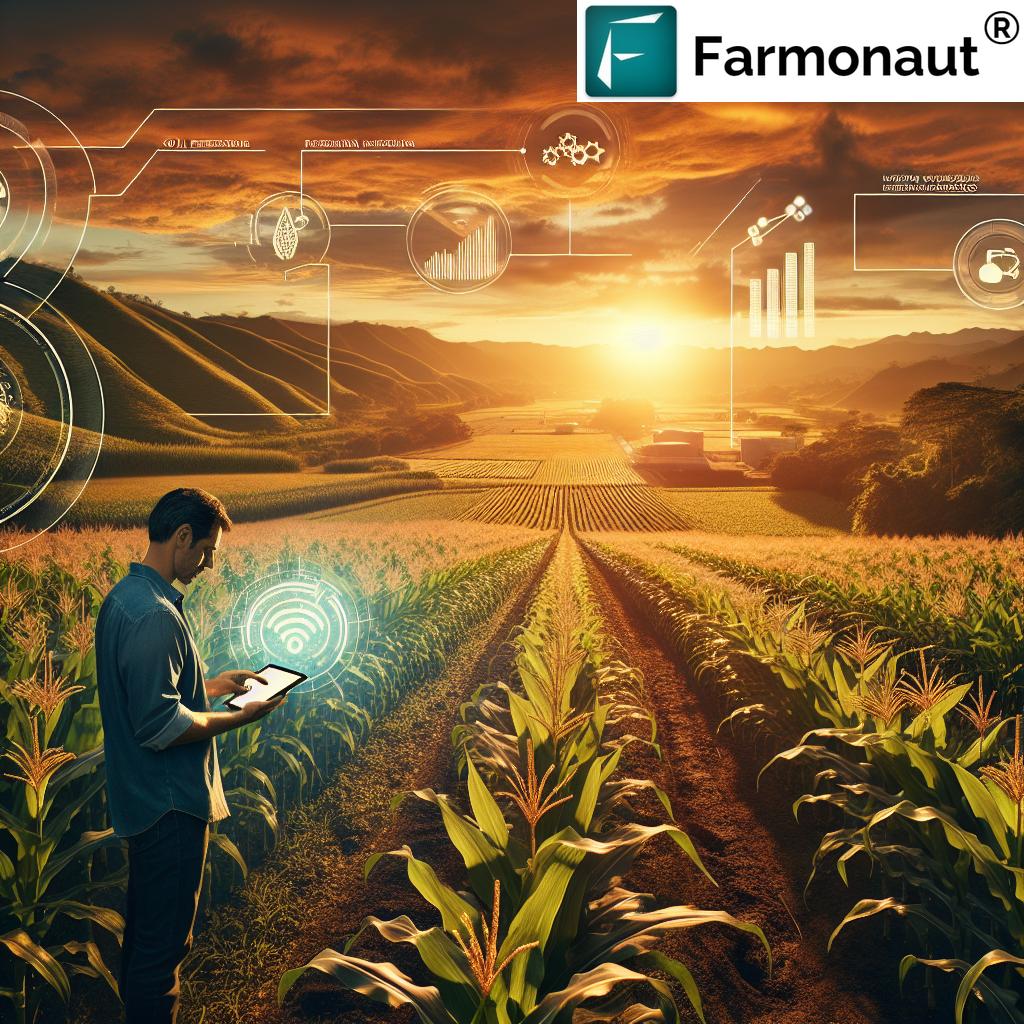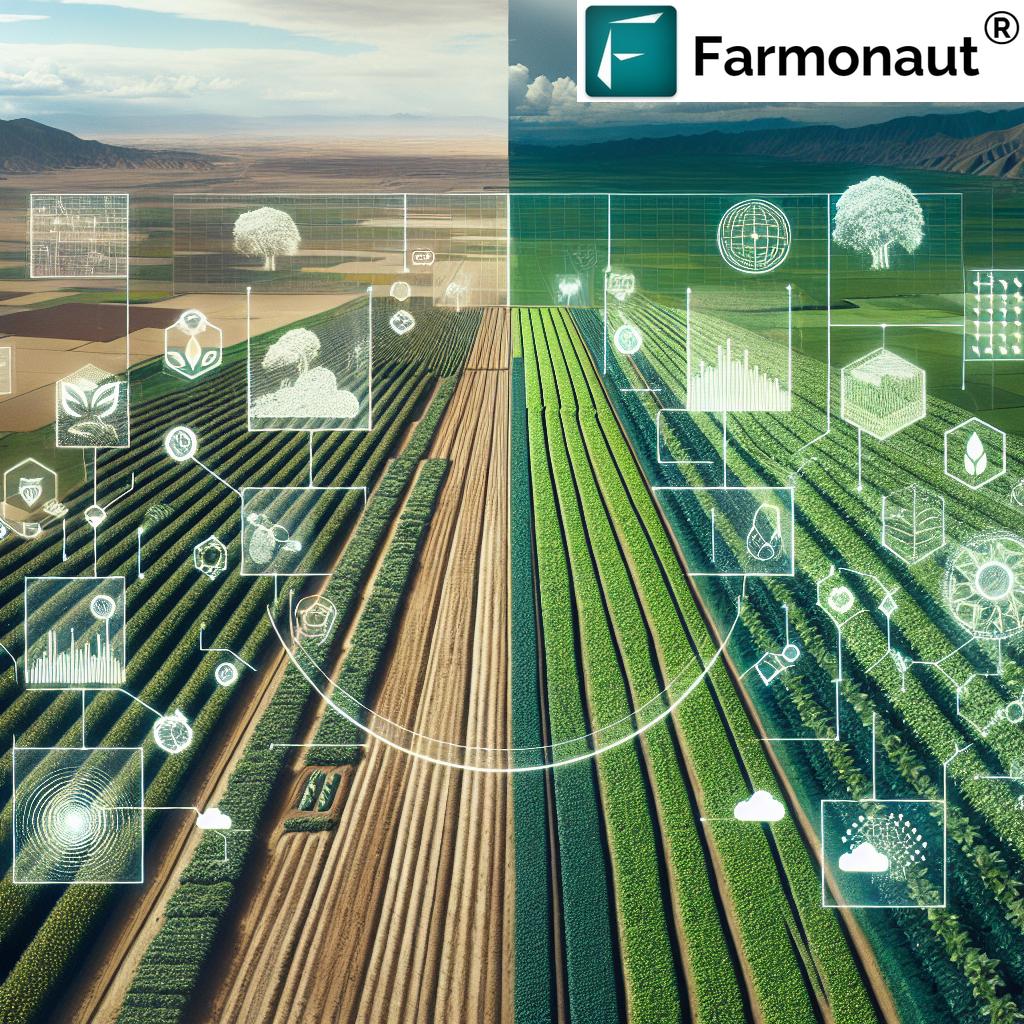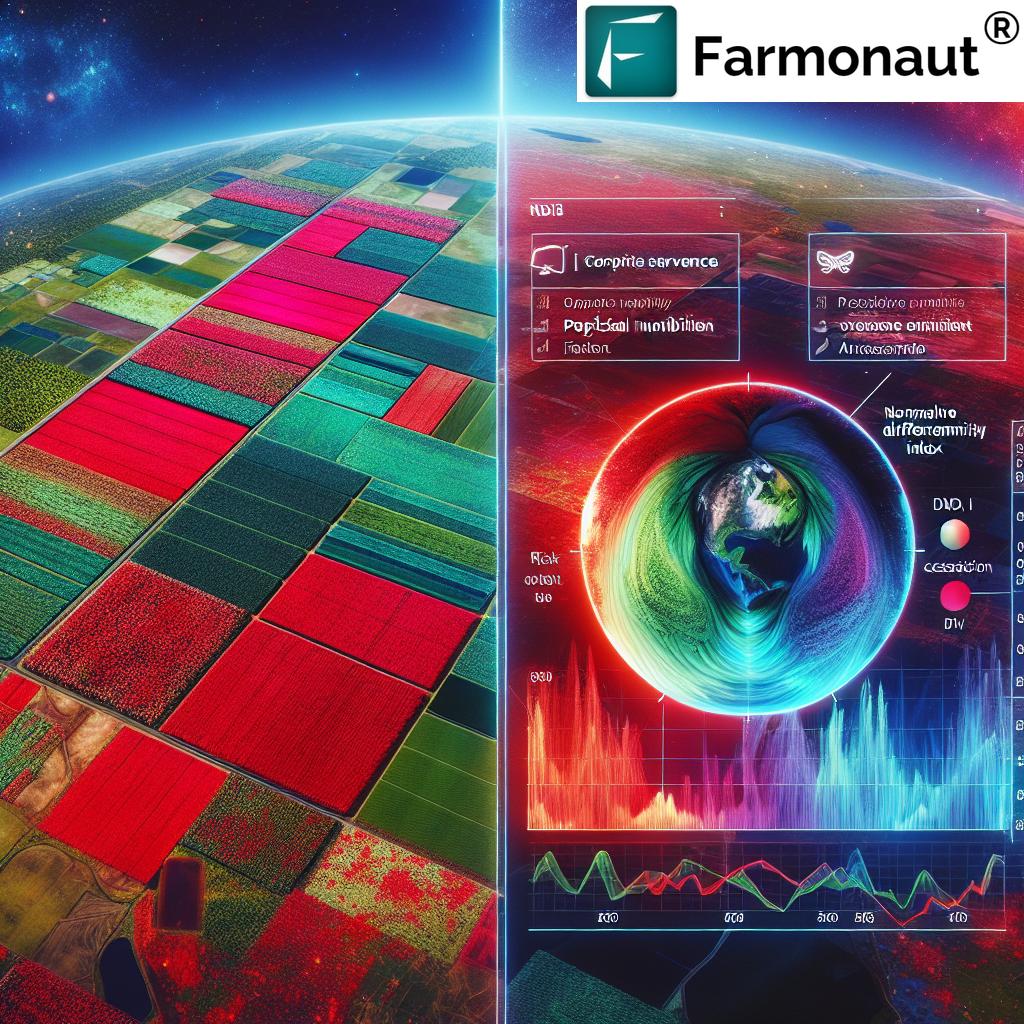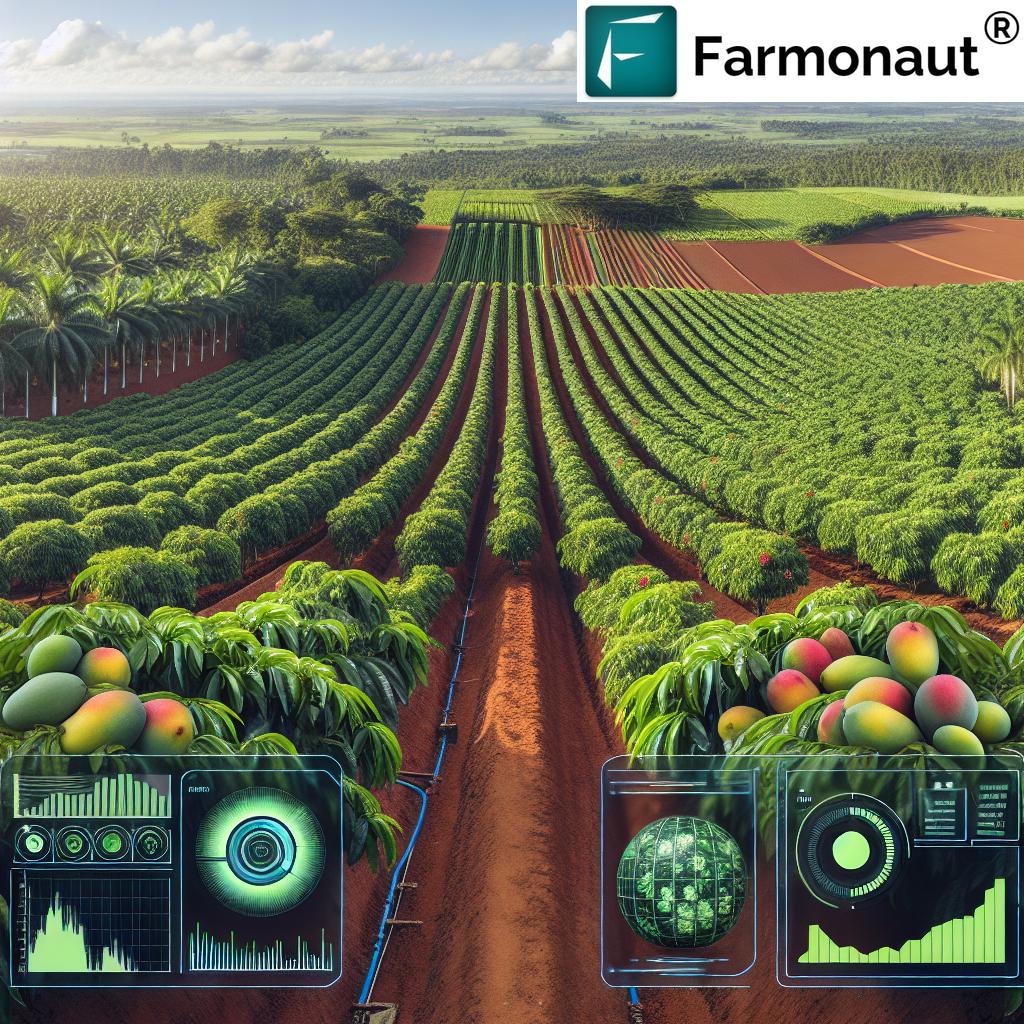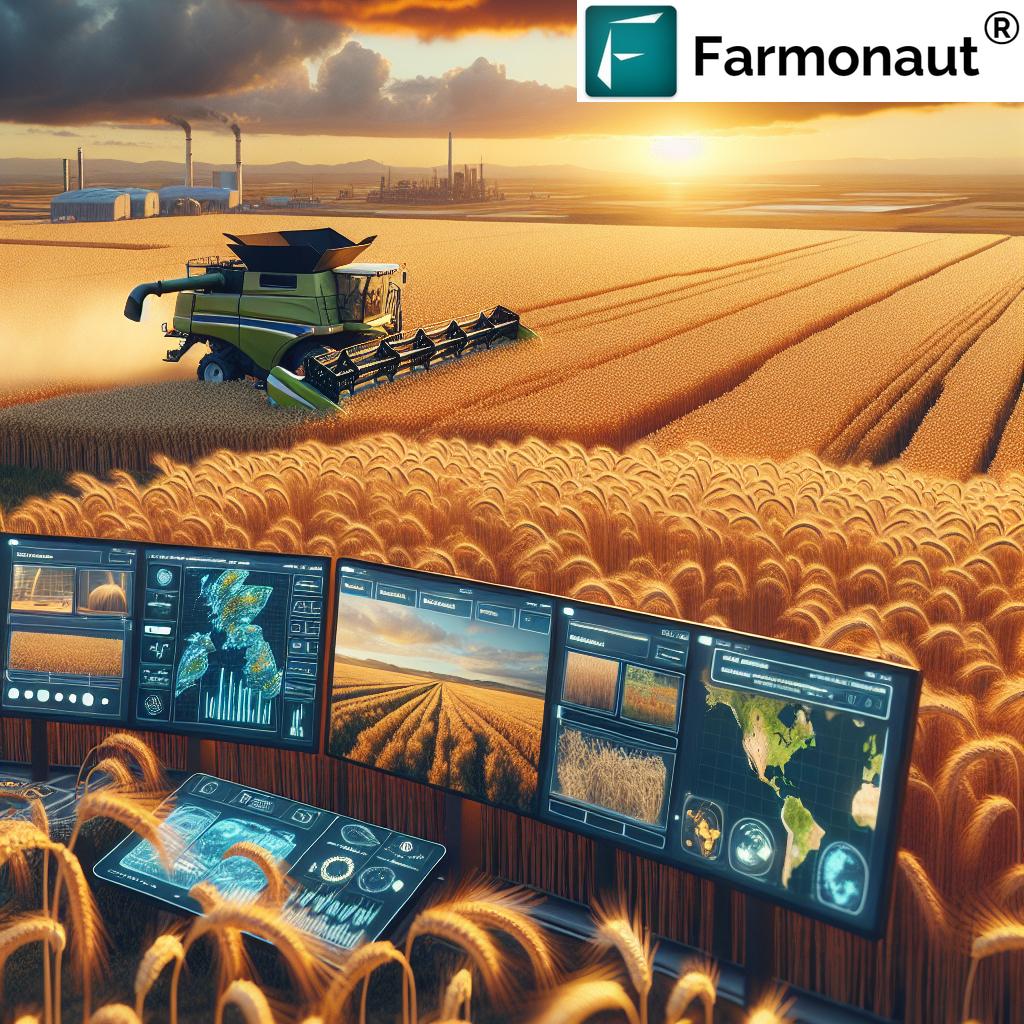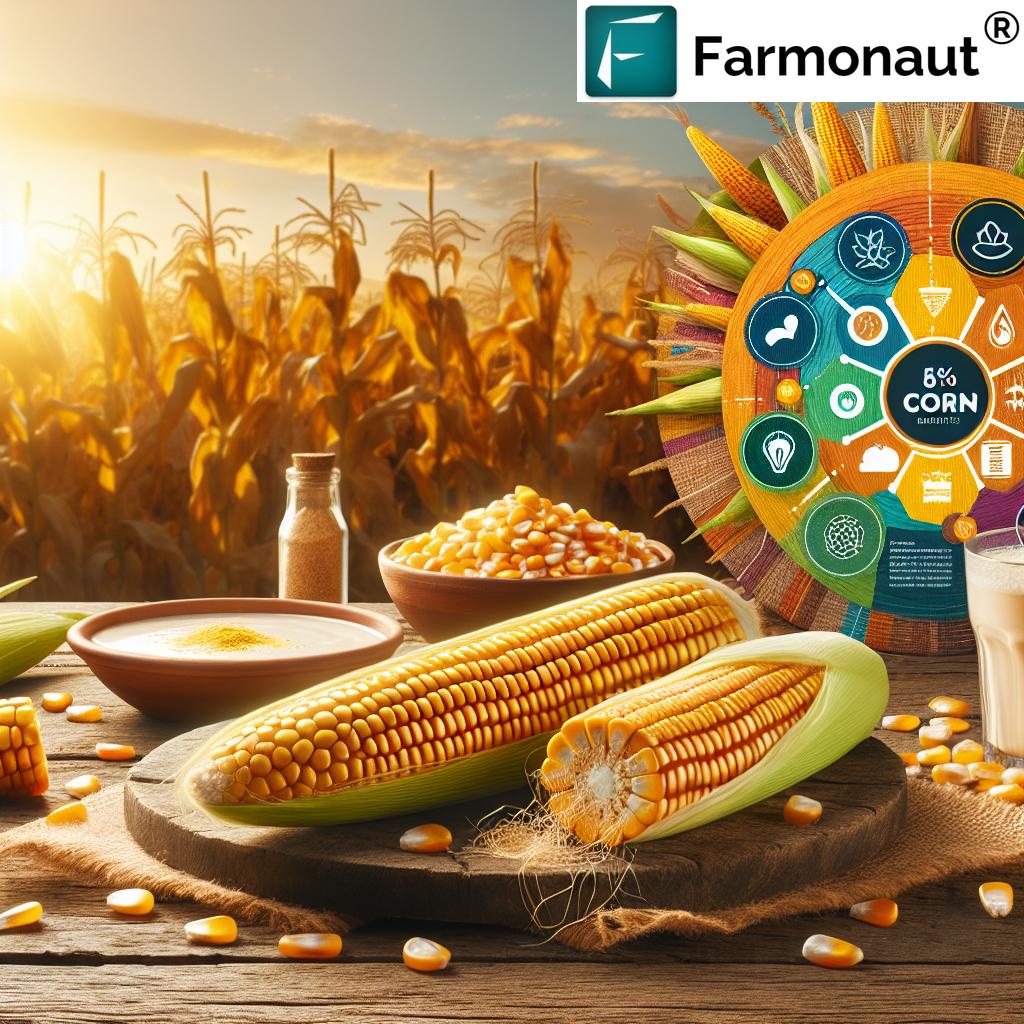Revolutionizing Coffee Traceability: How Science and Technology Are Enhancing Specialty Coffee Quality in Central and South America
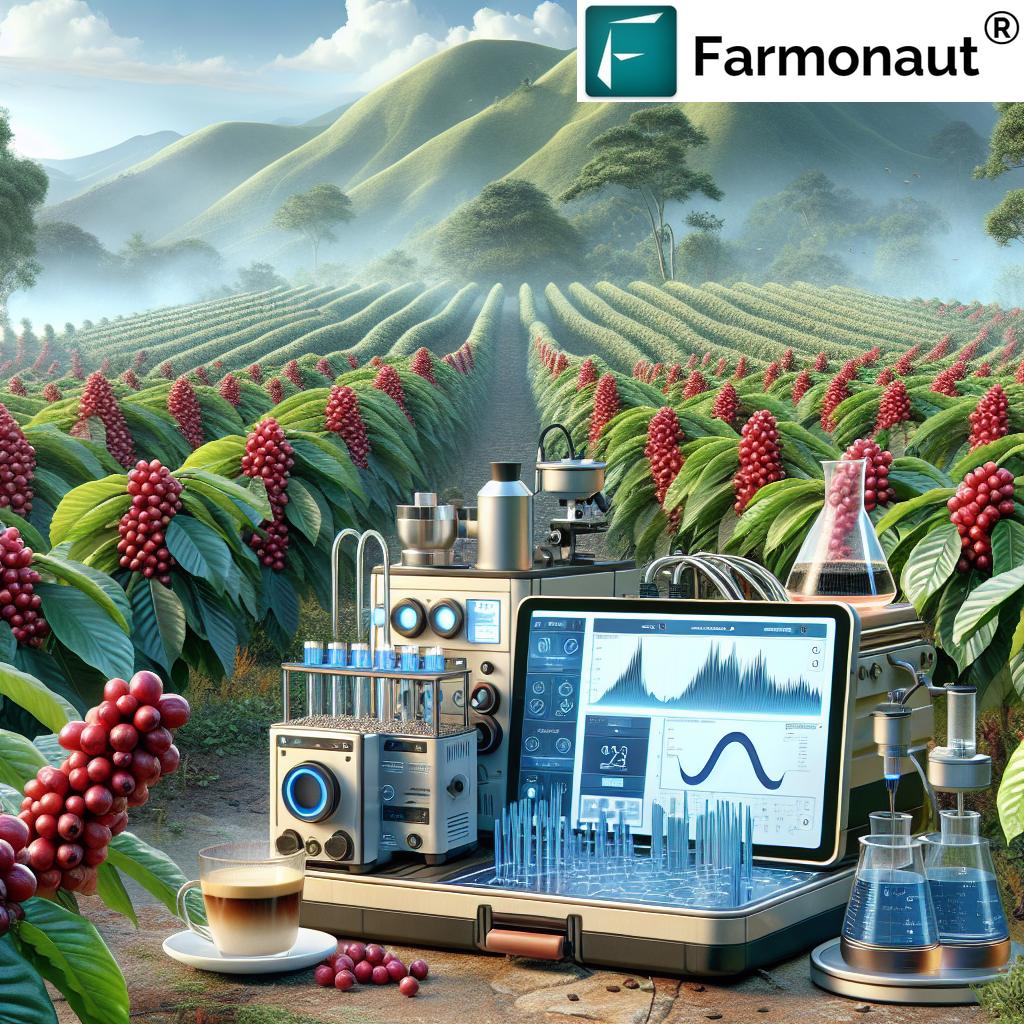
“Biochemical analysis can identify over 850 volatile compounds in coffee, contributing to its unique flavor profile.”
In the world of specialty coffee, a revolution is brewing. We’re witnessing an unprecedented collaboration between science and tradition that’s transforming the way we understand, produce, and appreciate high-quality coffee. At the heart of this transformation is a groundbreaking initiative that’s setting new standards for coffee traceability and quality assessment across Central and South America.
As we delve into this fascinating journey, we’ll explore how cutting-edge scientific techniques are being employed to enhance the quality of specialty coffee, improve the livelihoods of smallholder farmers, and create a more sustainable and transparent coffee industry. From the lush coffee plantations of Colombia to the high-altitude farms of Peru, we’re uncovering the secrets hidden within each coffee bean and how they contribute to the complex tapestry of flavors in your cup.
The Science Behind Specialty Coffee Quality
At the core of this initiative is a comprehensive scientific approach to understanding coffee quality. Researchers are employing advanced biochemical analysis techniques to study an impressive array of 420 different coffee samples, representing over 30 Arabica varieties. This extensive research is revealing fascinating insights into how geographical factors, cultivation methods, and processing techniques influence the molecular composition and sensory attributes of coffee.
Alessia Fiore, project leader at ENEA, emphasizes the significance of their findings: “Our investigation has unveiled remarkable differences in the chemical compositions of coffee samples based on their geographical origins. It’s clear that soil and climate factors play a crucial role in shaping the flavor profiles of coffee.”
This research is not just about understanding coffee at a molecular level; it’s about creating a bridge between science and sensory experience. Sarah Frusciante, an ENEA researcher, points out that these regional characteristics yield distinct sensory attributes, such as bitterness, acidity, and sweetness. By correlating chemical profiles with sensory analysis, we’re developing a more nuanced understanding of what makes a truly exceptional cup of coffee.
Traceability: The Key to Quality and Sustainability
In the realm of specialty coffee, traceability is more than just a buzzword—it’s a fundamental pillar of quality assurance and sustainability. The initiative we’re exploring aims to establish an unprecedented “identification card” for premium coffees, combining cutting-edge biotechnologies with traditional knowledge.
Gianfranco Diretto, head of the ENEA Laboratory of Green Biotechnologies, emphasizes the uniqueness of this approach: “We’re not just seeking to understand coffee; we’re scientifically assessing its quality in ways that have never been done before. This initiative is about creating a holistic view of coffee, from its molecular makeup to its impact on local communities.”
This traceability system goes beyond simple origin identification. It provides a comprehensive profile of each coffee, including its variety, cultivation methods, processing techniques, and even the specific environmental conditions under which it was grown. This level of detail not only ensures quality but also empowers consumers to make more informed choices about the coffee they drink.
Empowering Smallholder Farmers
At the heart of this initiative is a commitment to improving the livelihoods of smallholder farmers, who are the principal producers of specialty coffee. By establishing clear quality parameters and traceability systems, we’re creating a framework that allows for differentiated payments based on quality, sustainability, and traceability.
This approach has several benefits:
- It incentivizes farmers to focus on quality over quantity
- It provides a clear path for farmers to increase their income by producing higher-quality coffee
- It strengthens the connection between farmers and consumers, fostering a greater appreciation for the work that goes into producing exceptional coffee
Moreover, the scientific insights gained from this research are being shared with farmers, helping them to optimize their cultivation practices and adapt to changing environmental conditions. This knowledge transfer is crucial in building a more resilient and sustainable coffee industry.
The Role of Technology in Coffee Traceability
While traditional knowledge and expertise remain invaluable in coffee production, technology is playing an increasingly important role in enhancing traceability and quality assessment. Here’s where innovative companies like Farmonaut come into play.
Farmonaut, a pioneering agricultural technology company, offers advanced, satellite-based farm management solutions that can be particularly beneficial for coffee farmers. Their platform provides real-time crop health monitoring, AI-based advisory systems, and blockchain-based traceability tools.
For coffee farmers, these technologies can offer several advantages:
- Satellite-based crop health monitoring allows farmers to track the health of their coffee plants in real-time, enabling early detection of issues like pests or diseases
- AI-driven advisory systems can provide personalized recommendations for optimal cultivation practices based on specific environmental conditions
- Blockchain-based traceability solutions can enhance transparency in the coffee supply chain, from farm to cup
By integrating these technological solutions with the scientific research being conducted, we’re creating a powerful synergy that can drive the coffee industry forward.
The Impact of Climate on Coffee Production
“Central and South America produce approximately 30% of the world’s coffee, with Brazil leading as the top producer.”
As we delve deeper into the world of coffee production, it’s impossible to ignore the significant impact of climate on coffee quality and sustainability. Coffee plants are notoriously sensitive to environmental conditions, and even small changes in temperature or rainfall patterns can have profound effects on yield and flavor profiles.
The research initiative we’re exploring is taking a proactive approach to this challenge. By studying the chemical composition of coffee samples from different regions and correlating this data with climatic conditions, researchers are gaining valuable insights into how climate affects coffee quality.
Camilla Pandolfi, research manager at Pnat, notes an interesting finding: “We’ve observed that the variability in aroma compounds is more closely associated with terroirs—specific geographical environments—than with post-harvest processing or variety. This underscores the crucial role that climate and local environmental conditions play in shaping coffee quality.”
This research is not just academic; it has practical implications for coffee farmers facing the challenges of climate change. By understanding how different coffee varieties respond to specific climatic conditions, we can:
- Develop more climate-resilient coffee varieties
- Provide farmers with targeted advice on adapting their cultivation practices to changing conditions
- Identify new potential coffee-growing regions as traditional areas become less suitable
One exciting avenue of research is the exploration of wild coffee species like Coffea Stenophilla, which shows promise in terms of climate resilience. By studying these wild relatives of cultivated coffee, we may discover genetic traits that can be incorporated into breeding programs to develop more robust coffee varieties.
Enhancing Consumer Experience and Education
As we push the boundaries of coffee science and traceability, we’re also focusing on enhancing the consumer experience and education. After all, the ultimate goal of producing high-quality, traceable coffee is to deliver an exceptional cup to the end consumer.
One key aspect of this initiative is the development of barista training programs that are on par with sommelier training in the wine industry. These programs aim to equip baristas with a deep understanding of coffee origins, processing methods, and flavor profiles, enabling them to guide consumers through the rich and diverse world of specialty coffee.
Massimo Battaglia of the Accademia del Caffè Espresso highlights an important issue: “Too often, coffee loses its identity as it travels from farms to consumers, obscuring its rich history. Our goal is to recover this narrative by enhancing the value and tracing the origin of coffee, a product consumed daily but about which many know little.”
This focus on education extends beyond baristas to consumers as well. By providing detailed information about coffee origins, production methods, and flavor profiles, we’re empowering consumers to make more informed choices and develop a deeper appreciation for the complexities of specialty coffee.
The Future of Coffee: Sustainability and Innovation
As we look to the future of the coffee industry, it’s clear that sustainability and innovation will be key drivers of progress. The initiative we’ve explored represents a significant step forward, but it’s just the beginning of a larger transformation.
Here are some key areas where we expect to see continued innovation:
- Precision Agriculture: Technologies like those offered by Farmonaut will play an increasingly important role in optimizing coffee cultivation. From satellite-based crop monitoring to AI-driven advisory systems, these tools will help farmers make more informed decisions and improve yields while minimizing environmental impact.
- Genetic Research: As we face the challenges of climate change, research into coffee genetics will become increasingly important. This could lead to the development of new varieties that are more resistant to diseases, pests, and changing climate conditions.
- Processing Innovations: New processing techniques are constantly being developed, offering ways to enhance flavor profiles and reduce environmental impact. We expect to see continued innovation in this area, potentially leading to entirely new categories of specialty coffee.
- Blockchain and Traceability: As consumers become more interested in the origins of their coffee, blockchain technology will play a crucial role in ensuring transparency and traceability throughout the supply chain.
Collaborative Efforts Shaping the Future
The success of this initiative hinges on collaboration between various stakeholders in the coffee industry. From farmers and processors to researchers and consumers, each group plays a vital role in shaping the future of specialty coffee.
Key collaborative efforts include:
- Partnerships between research institutions and coffee producers to apply scientific findings in real-world settings
- Cooperation between technology companies and coffee farms to implement innovative solutions
- Education programs that bridge the gap between producers and consumers, fostering a greater appreciation for the complexities of coffee production
By working together, we can create a more sustainable, transparent, and high-quality coffee industry that benefits everyone from farm to cup.
Specialty Coffee Traceability Factors
| Traceability Factor | Scientific Technique | Impact on Quality | Sustainability Benefit |
|---|---|---|---|
| Geographical Origin | Biochemical analysis, Soil composition testing | Influences flavor profile and aroma compounds | Promotes preservation of unique terroirs |
| Arabica Variety | Genetic analysis, Phenotypic characterization | Determines base flavor characteristics | Encourages biodiversity in coffee cultivation |
| Cultivation Method | Satellite imagery analysis, Soil health assessment | Affects bean development and nutrient content | Promotes sustainable farming practices |
| Climate Influence | Weather data analysis, Microclimate monitoring | Impacts bean maturation and flavor complexity | Aids in climate change adaptation strategies |
| Processing Technique | Sensory evaluation, Chemical composition analysis | Defines final flavor profile and acidity levels | Optimizes resource use in post-harvest processing |
Conclusion: A New Era for Specialty Coffee
As we’ve explored throughout this article, we’re standing at the threshold of a new era in specialty coffee production. The convergence of scientific research, technological innovation, and traditional knowledge is creating unprecedented opportunities to enhance coffee quality, improve traceability, and promote sustainability.
From the advanced biochemical analysis techniques being used to study coffee samples to the satellite-based farm management solutions offered by companies like Farmonaut, we’re seeing a holistic approach to coffee production that considers every aspect from seed to cup.
This initiative is not just about producing better coffee—although that’s certainly a significant benefit. It’s about creating a more equitable, sustainable, and transparent coffee industry. By empowering smallholder farmers, enhancing traceability, and educating consumers, we’re building a system that benefits everyone involved in the coffee supply chain.
As we look to the future, it’s clear that the specialty coffee industry will continue to evolve. Climate change will pose challenges, but it will also drive innovation. New technologies will emerge, offering even more precise ways to monitor and optimize coffee production. And as consumers become more knowledgeable and discerning, the demand for high-quality, traceable coffee will only grow.
In this exciting landscape, initiatives like the one we’ve explored will play a crucial role in shaping the future of coffee. By combining scientific rigor with a deep appreciation for the art of coffee production, we’re not just preserving a beloved beverage—we’re elevating it to new heights of quality and sustainability.
So the next time you savor a cup of specialty coffee from Central or South America, remember the incredible journey it has taken—from the carefully tended plants on a mountainside farm to the high-tech laboratories where its chemical composition was analyzed, and finally to your cup, where all that science and artistry comes together in a perfect brew. It’s a testament to what we can achieve when we combine tradition with innovation, and a promising sign of what’s to come in the world of specialty coffee.
FAQs
- What is specialty coffee?
Specialty coffee refers to high-quality coffee that has been carefully cultivated, harvested, and processed to achieve superior flavor profiles. It typically scores 80 points or above on a 100-point scale set by coffee quality graders. - How does geographical origin affect coffee flavor?
Geographical origin significantly influences coffee flavor due to factors like soil composition, altitude, climate, and local biodiversity. These elements contribute to the unique chemical makeup of the coffee beans, resulting in distinct flavor profiles. - What role does technology play in coffee traceability?
Technology, such as satellite imagery, blockchain, and AI, plays a crucial role in enhancing coffee traceability. It helps monitor crop health, track the coffee’s journey from farm to cup, and provide transparency in the supply chain. - How can consumers support sustainable coffee production?
Consumers can support sustainable coffee production by choosing coffees with certifications like Fair Trade or Rainforest Alliance, learning about coffee origins, and being willing to pay fair prices for high-quality, sustainably produced coffee. - What is the impact of climate change on coffee production?
Climate change poses significant challenges to coffee production, including altered growing seasons, increased pest and disease pressure, and shifts in suitable growing regions. This is driving research into more resilient coffee varieties and adaptive farming practices.






